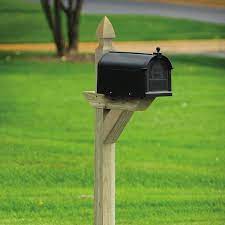Electricity is an essential part of our daily lives, powering our homes and enabling our devices. However, it can also pose serious risks if not handled properly. Electrical accidents, such as fires and shocks, are often the result of overloading outlets and improper use of extension cords. In this blog post, we’ll explore the importance of electrical safety and provide tips on how to avoid overloading outlets and use extension cords wisely to keep your home safe.
The Dangers of Overloaded Outlets
Overloaded outlets occur when too many electrical devices are connected to a single outlet or power strip simultaneously. This can lead to several potential dangers, including:
- Fire Hazard: Overloading an outlet can cause the wiring to overheat, potentially igniting nearby materials and starting a fire.
- Damage to Electronics: Frequent overloading can damage your appliances and electronic devices, leading to costly repairs or replacements.
- Tripping Circuit Breakers: Overloaded circuits can trip the circuit breakers or blow fuses, causing inconvenience and potential safety issues.
- Increased Energy Costs: Overloaded circuits can be less efficient and increase your energy bills.
Tips to Avoid Overloading Outlets
- Know Your Circuit Rating: Understand the electrical capacity of your circuits. Most household circuits are 15 or 20 amps. Do not exceed these limits.
- Use Surge Protectors: Consider using surge protectors with built-in circuit breakers. These can help prevent overloads and protect your devices from power surges.
- Unplug Unused Devices: When you’re not using a device, unplug it to free up the outlet for other appliances.
- Distribute Load: Spread out the use of high-wattage appliances throughout different outlets and circuits to prevent overloading a single one.
The Proper Use of Extension Cords
Extension cords are a convenient way to extend your reach to power sources, but when used improperly, they can be dangerous. Here’s how to use extension cords safely:
- Choose the Right Cord: Select extension cords that are rated for the intended use. Many stores will sell low gauge extension cords with three plugs on the end. If not properly rated these cords pose a serious fire risk. For example, outdoor cords are designed to withstand outdoor conditions.
- Inspect for Damage: Regularly check your extension cords for any signs of wear or damage, such as frayed wires or exposed conductors. Replace damaged cords immediately.
- Don’t Daisychain: Avoid daisychaining extension cords (plugging one into another) as it can overload the circuit and create a fire hazard.
- Use Temporary Solutions: Extension cords should be used as temporary solutions, not as permanent wiring. If you find yourself relying on them constantly, consider hiring an electrician to add more outlets.
- Don’t Pinch or Crimp: Ensure that extension cords are not pinched or crimped in doors, windows, or under heavy furniture, as this can damage the cord and create a safety hazard.
Electrical safety is paramount in every home. Avoiding overloading outlets and using extension cords wisely are simple yet crucial steps in preventing electrical accidents and fires. By following these safety tips, you can protect your home, your loved ones, and your valuable electronic devices from potential hazards. Remember that when it comes to electrical safety, a little precaution goes a long way.

Comments are closed